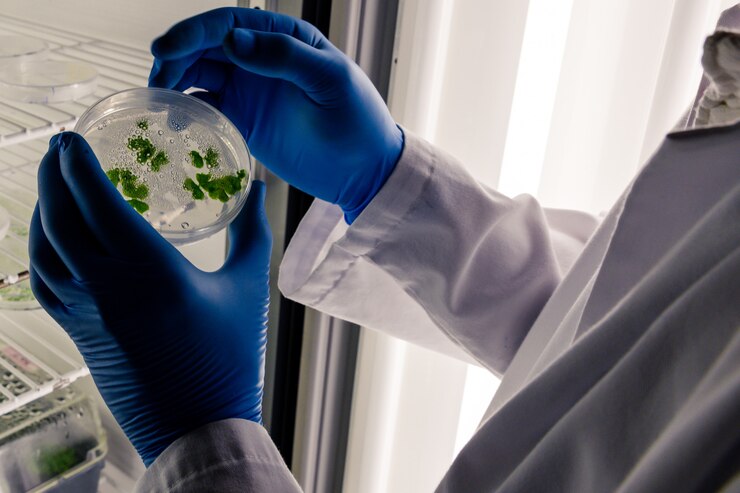Biocentrism Debunked

Biocentrism, a controversial theory focusing on consciousness and perception, offers a unique perspective on the universe, but requires critical analysis due to its lack of empirical evidence.
Biocentrism Debunked? True Science of Life
Biocentrism is a theory first introduced by Robert Lanza in 2007. According to this theory, consciousness is what control the universe. Everything else is simply a byproduct of it. More importantly, Biocentrism says that the universe is not a physical thing but it is a mental thing that we create with our perceptions.
The concept of Biocentrism debunked suggests that biology, rather than physics, is the fundamental science of the universe. It further explains that life and consciousness are the key parts of existence. Remaining things are secondary to them.
Biocentrism Debunked? A Controversial Intersection of Science and Philosophy
Biocentrism, a term that has stirred debates and discussions in both the scientific and philosophical communities, is a theory that proposes a radical shift in our understanding of the universe. But what is biocentrism, and why has it become such a contentious topic?
Defining Biocentrism
Introduced by Robert Lanza in 2007, biocentrism posits that consciousness is the driving force behind the universe, with everything else being a mere byproduct of it. In essence, the universe is not a tangible entity but a mental construct shaped by our perceptions. This theory suggests that biology, not physics, is the primary science of the universe. It emphasizes that life and consciousness are the fundamental components of existence, with all other aspects being secondary.
A Brief History
The roots of biocentrism can be traced back to Robert Lanza’s 2007 publication, “Biocentrism: How Life and Consciousness are the Keys to Understanding the True Nature of the Universe.” This work challenged conventional scientific and philosophical beliefs, proposing a universe where life and consciousness are at the core, and matter is secondary.

Supporting Arguments
Proponents of biocentrism highlight several key arguments:
- Consciousness as the Core: Biocentrism offers an explanation for consciousness, a concept that many traditional physical theories have struggled to define. By placing consciousness at the heart of its framework, biocentrism provides a rationale for our self-awareness.
- Perception and Existence: The theory emphasizes the role of perception in shaping our universe. It suggests that the precise conditions of our universe, which seem perfectly tailored for life, can be understood when one recognizes that life and consciousness are central to existence.
Critiques and Counterarguments
However, biocentrism has faced its fair share of criticisms:
- Lack of Empirical Evidence: One of the primary critiques is the absence of empirical evidence supporting biocentrism. Critics argue that while the theory offers a different perspective on consciousness, it fails to provide tangible evidence or testable predictions.
- Contradiction with Modern Physics: Another criticism is that biocentrism’s foundational principles contradict established laws of physics. While biocentrism views the universe as a mental construct, modern physics understands the universe as a measurable, physical entity.
Alternative Theories
While biocentrism has its supporters and detractors, it’s essential to consider alternative scientific and philosophical theories that offer a more holistic view of life. These alternatives, grounded in empirical evidence and rigorous testing, provide comprehensive explanations for the nature of existence without relying solely on consciousness as the primary factor.
Robert Lanza and Biocentrism: Do Time and Space Really Only Exist in Our Minds?
Is Robert Lanza’s theory of biocentrism credible? Some physicists disagree with the idea. Here’s what you need to know.

The universe is very complex — it can be hard to wrap our minds around concepts like time and space, especially if we think about it a little bit too long. One scientist even has a theory that our consciousness creates the universe.
The theory that our minds create time and space is known as biocentrism. However, not all physicists are on board with the idea; many disagree. Keep reading to learn more about why some scientists debunk biocentrism, or believe that it’s not credible.
What is biocentrism?

According to Robert Lanza’s theory of biocentrism, it’s our consciousness that creates the universe, rather than the universe creating our consciousness. This would mean that concepts like time and space only exist in our minds.
The scientist first proposed the theory in 2007, and it was met with both skepticism and intrigue. On his website, Lanza explained that he believes that our reality is reliant on biology, a concept that some might find confusing at first. Could biocentrism give us our most sought-after answers to all of our scientific questions?

Biocentrism is a combination of both physics and biology, which adds observers into the picture — it’s meant to be an overall explanation of our world, aka, a theory of everything. Lanza thinks that other theories of the universe fail to incorporate one aspect: The role of humans.
He believes that, despite all that scientists have discovered about the universe, they’ve managed to learn nothing about consciousness — which is an underlying detail of all other factors and processes, according to an article Lanza wrote for NBC News regarding biocentrism. He finds our widely used models to be unsatisfactory.

To explain his ideas further, Lanza gave an example of an experiment showing how much the observer creates and impacts reality.
In the experiment, it was proven that if someone “watches” a subatomic particle or light pass through a barrier, it will create “solid-looking hits.” When particles aren’t observed, it will show “the behavior of waves that allow it pass through both holes at the same time.” This is to say that the behavior of subatomic particles will differ depending on whether or not they are being observed.
Lanza often explains this phenomena through the example of a kitchen. Logically, we would assume that our kitchen is always present, including all of the different objects in it — it doesn’t matter if we are in the kitchen or not. All of the shapes and colors that make up your kitchen are seen due to the photons of light and the functions of your brain working to identify them.
Lanza sums up this experience: “So while you may think that the kitchen as you remember it was “there” in your absence, the unquestionable reality is that nothing remotely resembling what you can imagine could be present when a consciousness is not interacting.”
Why do people debunk biocentrism?
While some compare Lanza to Einstein, others are not so generous. It’s safe to say that the theory of biocentrism isn’t widely accepted in the scientific community, despite its attention and popularity.
For the most part, scientists are against the theory because it lacks empirical evidence — some even consider it speculative. One flaw in particular is figuring out how to determine if the idea of “observer time” is real, Wired explained.
Another common criticism of biocentrism is that it’s unfalsifiable. This means that you can’t prove that something doesn’t exist if you’re not given the chance to observe it to prove that it did or did not exist in the first place.
No matter what you believe, science is always changing and we are always learning new things about our universe. With a little bit more research, biocentrism could gain more confidence from the scientific community.
Has Biocentrism Been Debunked?

Biocentrism is the new talk of the town! But what is it exactly? Well, it is a philosophical concept, deeply rooted in the reverence for all living beings. At its core, biocentrism states that all living creatures have inherent worth and deserve ethical consideration. With roots in the works of eminent philosophers and morality thinkers, this ideology has sparked both intrigue and controversy. Does that mean “biocentrism debunked?”
Let’s unravel the complexities of biocentrism. From the clash of opposing viewpoints to the intricacies of practical application, we’ll navigate the arguments for and against biocentrism’s validity, shedding light on the interplay between humanity, nature, and the very essence of existence.
What is Biocentrism?

Later, key proponents like Aldo Leopold and Arne Naess shaped the development of ideologies related to biocentrism. Leopold, an American ecologist, promoted the idea of a “land ethic,” urging humans to see themselves as part of the broader community of life. Similarly, Naess, a Norwegian philosopher, introduced the idea of “deep ecology,” emphasizing the intrinsic value of all beings and the connection of life.
Finally, it was Dr. Lanza who fabricated an all-round “Biocentrism Theory” based on Quantum Physics, which says that life is the driving force that shapes the universe, not the other way around. In his view, he emphasizes that biology is more important than physics because a deep understanding of life and consciousness is essential to fully grasp these disciplines. He insists that a comprehensive ‘Theory of Everything’ is only possible when we observe the basic elements of nature — matter, space, and time — from a biocentric point of view. Dr. Lanza first shared these groundbreaking concepts in a notable article published in The American Scholar back in 2007.
Notable Figures in the Biocentrism Debate
In the intriguing biocentrism debate, several notable figures have emerged, both advocating and critiquing the concept. Dr. Robert Lanza argues that life and consciousness are the fundamental aspects of the universe. However, critics like physicist Sean Carroll have offered counterarguments, challenging the claims made by biocentrism proponents. Carroll contends that biocentrism lacks empirical evidence and may not provide a solid scientific foundation.
Furthermore, David Lindley, a theoretical physicist, has voiced out criticism towards Lanza’s essay in The American Scholar, referring to the concept as a “vague, inarticulate metaphor” and questioning its potential for meaningful scientific or philosophical discoveries.
Is Biocentrism Debunked? Maybe, But It Still Has Value for the Environment.
Is Robert Lanza’s biocentrism theory debunked? Not exactly, but the bigger question might be: does it have merit for the environment?
Biocentrism, the belief that all life and the universe itself are interconnected and that it’s life that creates the universe rather than the other way around, has been gaining momentum in recent years.
The idea posits that life and biology are central to understanding the nature of the universe. However, despite its appeal to many, it’s crucial to scrutinize these concepts from a scientific and philosophical perspective, as they can be challenged on several grounds.
Is Biocentrism Debunked? — Challenging A Perspective
Biocentrism has a simple message: all life forms are equally valuable and must be treated with the same fairness and moral justice. Looking at all angles, let’s answer the question: Is Biocentrism debunked?
For many people, biocentrism is the not-so-new but very much improved perspective for viewing the universe. Some other people find it hard to grasp. Over the years, people have come up with arguments for and against biocentrism ethics. Yes, philosophical and scientific scrutiny has found the theory has loopholes and lacks empirical evidence, but is biocentrism debunked?
What is Biocentrism Theory?

Also Read: theapknews.shop
To put it simply, biocentrism asserts that all living things in the universe are equal. Therefore, we must give all an equal consideration. The term biocentrism has its etymological origin in two Greek words, ‘bio’ meaning life, and ‘kentron’ which means center.
Biocentrism addresses concerns such as the right of self-preservation of all life forms and the moral responsibility of all living organisms.
To better understand biocentrism, let’s take a quick look at the following terms.
Biocentrism Debunked: Separating Fact from Fiction
Biocentrism debunked is a worldview that places an emphasis on the importance of life and organisms as the starting point for any investigation into the cosmos. Biocentrists contend that life is essential to the cosmos and that our minds significantly shape the world around us. Yet, the scientific community has remained skeptical about biocentrism despite its popularity and attractiveness to some. Here, we’ll dissect biocentrism and separate fact from fiction by examining its fundamental claims and debunking them.
The Universe is Not Conscious
Biocentrism debunked the idea that consciousness is an essential feature of the universe is central to the biocentric worldview. Yet, there is a dearth of evidence to back up this claim scientifically, and it is not supported by our present knowledge of physics and cosmology. The concept of a conscious cosmos is grounded less in observation and science than in philosophical speculation and personal belief.
Consciousness is Not Required for the Existence of the Universe
According to the biocentrist view, the universe could not have come into being without the presence of awareness. Unfortunately, there is no evidence to back up this assertion. Consciousness is unnecessary to understand the universe’s origins with current scientific hypotheses like the Big Bang theory and the laws of physics. Without invoking consciousness as a fundamental property of the cosmos, physics and the fundamental forces that control it may be understood and predicted using mathematical equations and empirical evidence.
Biological Life is Not the Center of the Universe
The biocentrist view holds that all other theories of the cosmos revolve around and depend on the existence of biological life. Yet, the scientific community has rejected this notion as being too anthropocentric. The sheer size of the universe, with its billions of galaxies, stars, and planets, shows that life on Earth is not fundamental to or unique to the universe, but rather a little and regional phenomena. Furthermore, dark matter and dark energy, which do not rely on the presence of life to exist, make up the vast majority of the cosmos.
Biocentrism Does Not Align with Established Scientific Theories
The theory of relativity and quantum mechanics are two examples of thoroughly researched and validated scientific theories that biocentrism directly contradicts. biocentrism debunked The theory of relativity, for instance, which describes the behavior of objects at high velocities and in strong gravitational fields, can explain the behavior of the cosmos without the need for the presence of consciousness or biological life. In the same way, the theory of quantum mechanics, which is used to explain how subatomic particles behave, does not require awareness to be true. Therefore, the current scientific consensus and empirical facts do not support biocentrism.
Lack of Testable Predictions
Scientific theories are distinguished by their ability to generate predictions that can be tested and either corroborated or disproved by observations in the real world. Therefore, biocentrism cannot make predictions that can be independently validated. Instead of empirical data and objective observations, the arguments of biocentrism are frequently reliant on subjective interpretations and philosophical speculation. Biocentrism cannot be regarded a scientific theory because it does not make any predictions that can be tested.
Conclusion
In conclusion, biocentrism presents a unique perspective on the universe, emphasizing the role of consciousness and perception. However, its lack of empirical evidence and contradictions with established scientific principles make it a controversial theory. While it offers a fresh viewpoint, it’s crucial to approach biocentrism with a critical mind, considering both its merits and limitations. As with all theories, the pursuit of knowledge and understanding continues, and biocentrism is just one piece in the vast puzzle of existence.






